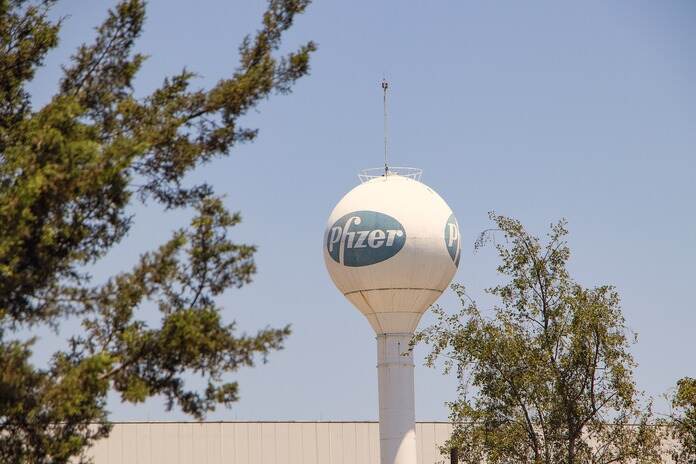Pfizer (NYSE:PFE) witnessed a significant decline in its shares as it reset its 2024 sales projections, projecting figures that could be up to $5 billion below Wall Street estimates. This move, aimed at providing a more accurate outlook for its COVID-19 business, led to shares reaching a 10-year low.
The forecast for 2024 suggests that revenue from Pfizer’s COVID-19 vaccine and treatment, which reached $57 billion in 2022, is expected to be around $8 billion in 2024. This marks a further decrease from both analysts’ expectations of $13 billion and Pfizer’s own revised estimate of $12.5 billion for the current year.
Pfizer’s CEO, Albert Bourla, emphasized the company’s intention to adopt a conservative approach to projections, aiming for reliability to avoid creating uncertainty, as witnessed in the current year. The company utilized part of its COVID windfall for strategic acquisitions, including a $43 billion deal for cancer drugmaker Seagen, expected to conclude this week. Additionally, Pfizer launched a new RSV vaccine based on the mRNA technology employed in its COVID vaccine. However, the RSV vaccine’s recent launch has fallen short of expectations, leading to a 44% decline in shares throughout the year.
Factors contributing to the challenging scenario include a decline in COVID-19 vaccinations in the U.S., with only about 17% of the eligible population receiving the latest updated boosters. This decline is attributed to diminishing concerns about the virus and vaccine fatigue.
Pfizer’s 2024 adjusted profit forecast, ranging between $2.05 and $2.25 per share, is lower than analysts’ expectations of $3.16 per share. Consequently, Pfizer shares experienced a further 7.3% decrease, potentially wiping out over $12 billion in market capitalization if the losses persist.
Notably, shares of Pfizer’s COVID-19 vaccine competitor Moderna (MRNA.O) also saw a nearly 5% decline, while Pfizer’s German vaccine partner BioNTech (22UAy.DE) experienced a 5.5% drop.
Analysts express concerns about Pfizer’s current position, noting the company’s accumulation of debt for deals like Seagen. Doubts linger about whether Pfizer has done enough to counterbalance lost revenue from drugs expected to face generic competition in the coming years.
Seagen is anticipated to contribute $3.1 billion to Pfizer’s revenue in the next year. The company has raised its cost-cutting target by $500 million and now expects annual revenue in the range of $58.5 billion to $61.5 billion, falling short of analysts’ average estimate of $63.17 billion.
Pfizer’s lower projections come on the heels of a reorganization in its cancer division, incorporating the Seagen acquisition. With the company’s COVID-19 product sales facing a steep decline, Pfizer aims to save at least $4 billion annually by the end of 2024 through job cuts and expense reductions.
The management shake-up includes the departure of Chief Commercial Officer Angela Hwang, and a reorganization of Pfizer’s commercial business into two divisions, one focusing on the United States and the other on the rest of the world. Analysts highlight Pfizer’s urgent actions to address weak stock performance, but the absence of promising high-potential pipeline assets poses challenges, especially with several Pfizer products expected to go off patent in the coming years.
Featured Image: Pixabay















